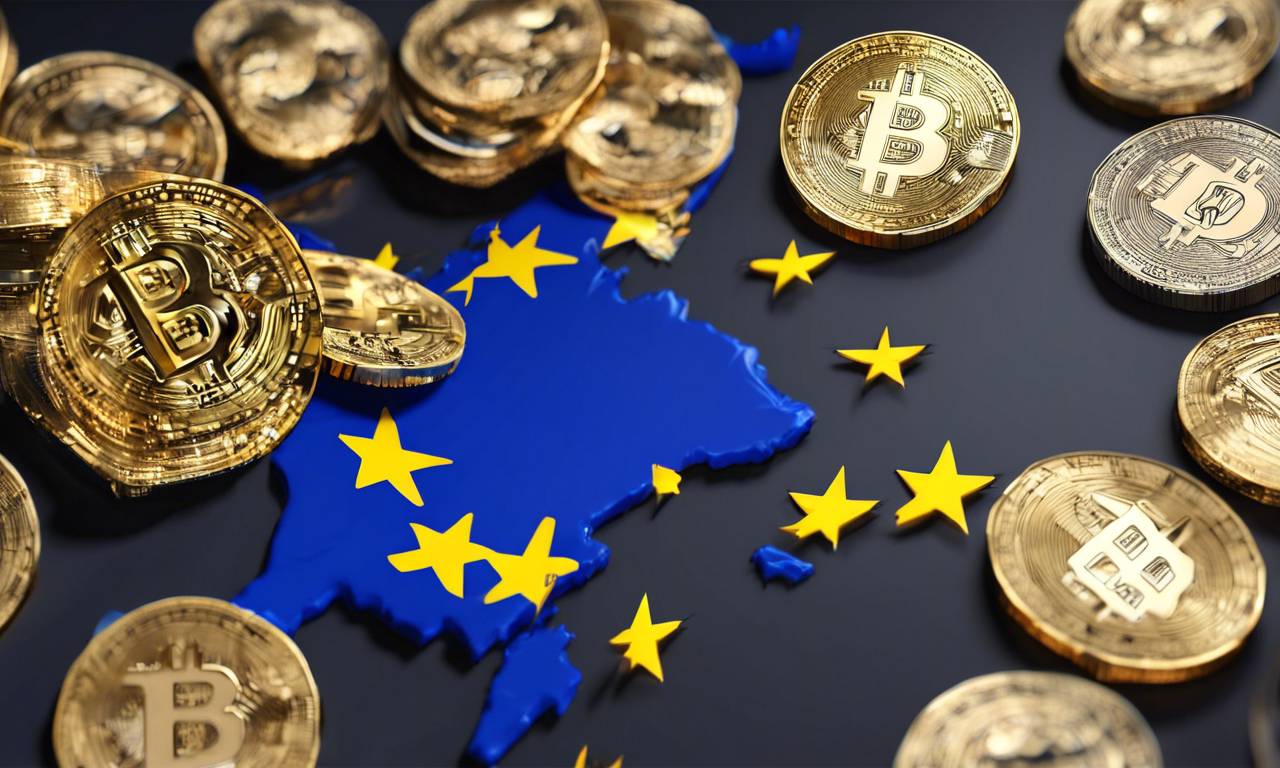EU Lawmakers Approve New Rules to Crack Down on Sanctions Violations, Including Cryptocurrencies
European Union lawmakers have recently voted to implement new sanction violation laws, aiming to crack down on violations involving cryptocurrencies. The Members of the European Parliament (MEPs) voted in favor of these new rules, which include travel bans, arms embargoes, business sector restrictions, and freezing of assets, including crypto-assets and wallets.
Sophie in ‘t Veld, a Dutch MEP, stated that this legislation is necessary to address weaknesses and loopholes created by diverging national approaches. It will also allow for the confiscation of frozen assets.
Stronger Punishments for Violations
The newly approved directive establishes stronger punishments for violating or circumventing sanctions. These new laws classify sanctions transgressions as criminal offenses punishable by a maximum prison sentence of five years in all EU member states.
The new rules received overwhelming support from lawmakers representing the 27 EU member states, with 543 votes in favor, 45 against, and 27 abstentions. The need for this legislation was driven by concerns that the bloc’s sanctions against Russia were being evaded.
Implications for Cryptocurrencies
The approval of these new rules has significant implications for cryptocurrencies. Here are some key points to consider:
- Crypto-Assets: The freezing of assets now includes crypto-assets and wallets. This means that if an individual or entity is subject to EU sanctions and possesses crypto-assets or uses cryptocurrency wallets, those assets can be frozen.
- Circumvention: The new laws aim to prevent the circumvention of sanctions involving cryptocurrencies. This includes using digital currencies to evade travel bans or engage in prohibited business activities.
- Criminal Offenses: Violating or circumventing sanctions involving cryptocurrencies is now classified as a criminal offense. Individuals or entities found guilty can face prison sentences of up to five years.
- Confiscation: The legislation allows for the confiscation of frozen assets, including crypto-assets. This means that if an individual’s assets are frozen due to sanctions violations, their cryptocurrency holdings can also be confiscated.
The Importance of Regulation
The approval of these new rules highlights the increasing importance of regulation in the cryptocurrency space. Here are a few reasons why regulation is crucial:
- Preventing Illicit Activities: Regulations help prevent cryptocurrencies from being used for illicit activities such as money laundering, terrorism financing, and sanctions evasion.
- Protecting Investors: Regulations provide a level of protection for investors by ensuring transparency, accountability, and compliance with anti-fraud measures.
- Mitigating Risks: Regulatory frameworks help mitigate risks associated with cryptocurrencies, such as market manipulation, fraud, and theft.
- Promoting Innovation: Clear regulations can foster innovation by providing legal certainty and attracting legitimate businesses to the crypto industry.
Conclusion
The approval of new sanction violation laws by European Union lawmakers signifies a significant step towards cracking down on sanctions violations involving cryptocurrencies. The inclusion of crypto-assets and wallets in the freezing of assets and the classification of violations as criminal offenses demonstrates the EU’s commitment to addressing weaknesses and loopholes in its sanctions regime.
These new rules have important implications for individuals and entities involved in cryptocurrency transactions. It is crucial for crypto users to understand and comply with these regulations to avoid legal consequences. Furthermore, the approval of these rules emphasizes the growing importance of regulation in the cryptocurrency space, as it helps protect investors, prevent illicit activities, and promote innovation.
Hot Take: EU Lawmakers Pass New Rules to Combat Sanctions Violations
The recent approval of new sanction violation laws by European Union lawmakers is a significant development in the fight against sanctions violations involving cryptocurrencies. By expanding the scope of freezing assets to include crypto-assets and wallets and classifying violations as criminal offenses, the EU is taking a strong stance against those who seek to evade sanctions.
These new rules demonstrate the EU’s commitment to addressing weaknesses and loopholes in its sanctions regime, particularly in response to concerns about circumvention of sanctions against Russia. The inclusion of cryptocurrencies in these regulations reflects their increasing prominence and the need for regulatory measures to ensure their responsible use.
As a crypto reader, it is essential to stay informed about regulatory developments that may impact your cryptocurrency holdings and transactions. Understanding and complying with these regulations will help you navigate the evolving landscape of cryptocurrency regulations and mitigate any potential legal risks.
Theon Barrett shines as a distinguished crypto analyst, accomplished researcher, and skilled editor, making significant strides in the field of cryptocurrency. With an astute analytical approach, Theon brings clarity to intricate crypto landscapes, offering insights that resonate with a broad audience. His research prowess goes hand in hand with his editorial finesse, allowing him to distill complex information into accessible formats.

